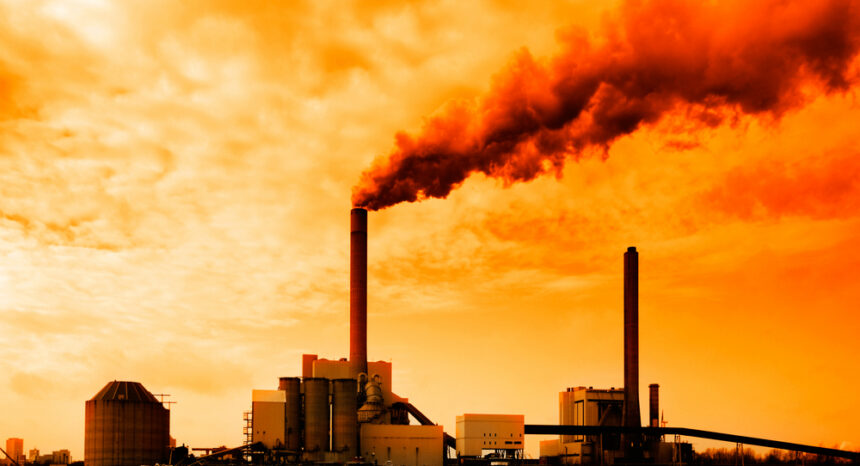
Resolution-1 (15th Rashtriya Sabha, Gwalior (MP))
Swadeshi Jagran Manch
15th Rashtriya Sabha, Gwalior
(24-26 December 2021)
Resolution-1
Environment
Environment broadly implies physical surroundings common to all of us, including air, space, water, land, plants, and wildlife. The term also includes the issues relating to climate change and its impact on biodiversity. It also refers to our culture or way of life affecting human behaviour and our consumption pattern.
Our Constitution also put obligation on the state to protect and improve the environment as it is a fundamental right of every citizen to live in unpolluted environment. Government of India has accordingly enacted several environment laws against pollution and cast duties to protect the environment including on deforestation.
Although the term sustainable development is much talked about but the real emphasis should be on sustainable consumption as huge amount of resources are wasted under the garb of consumption by the developed and affluent countries and they have emitted huge CO2 in the atmosphere and are now trying to shift the blame and to reduce emissions on developing countries like ours. Indian culture has always supported restrain and rationality in consumption. There is thus a need for change in the lifestyle and to penalise those few developed countries who are responsible for irrational and wasteful consumption.
Major international issues of Environment are:
- Global warming
- Depletion of Ozone Layer
- The protection of the rain forest
- Save wild life and animal species
- The control of hazardous substances including CO2 and Methane Emissions
- Waste Management and Conservation of natural resources
- Biodiversity
- Plant species and lifestyle of indigenous people
- Protection of eco-system
- Deforestation
- Floods
- Famines
- Climate Refugees
- Cyclones and dangers to coastal areas specially with reference to the recent IPCC Report on Climate Change and rising temperature.
Global warming has a dangerous effect on our environment that we are facing these days. and it refers to the increase in the average temperature of the earth's surface during the last century. One of the reasons why global warming is dangerous is because it disturbs the overall ecology of the planet.
The effect of global warming is widely seen in this decade.
Glacier retreat and arctic shrinkage are the two common phenomena Glaciers are melting in a fast way. Rise in sea level is another significant effect of global warming. This sea-level rise is leading to floods in low-lying areas. Extreme weather conditions are witnessed in many countries. Unseasonal rainfall, extreme heat and cold, Wildfires and others are common every year. The number of these cases are increasing. This will indeed imbalance the ecosystem bringing the result of the extinction of several species.
The most evident causes of global warming are industrialization, Internet pollution, urbanisation and deforestation. These human activities have led to an increase in the emission of the greenhouse, including CO2, nitrous oxide, methane, and others. Methane gas has shorter lifespan of 12 years as compared to more than 200 years for CO2 but it traps heat 84 times that of CO2 and therefore known as “ Super warmer of the atmosphere”. Similarly, volcanoes are also leading to global warming because they spew too much CO2 in the air. The bulk of the CO2 emissions are from burning of fossil fuels, which are used to generate electricity, transport goods and power our houses and factories
As per IPCC AR-6 Report 2021 annual CO2 emissions have reached 36.4 gigatonnes (GT) in 2019 which needs to be brought down to 18.22 GT by 2030. China, US and EU-27 currently emit over 50% of the World’s 36.44 GtCO2. China is likely to increase its share of CO2 emissions from 10Gt/CO2 to 12 GT/CO2 annually in the coming decade. Africa and India with 17% of World population (each) contribute just 4% and 7%. Therefore, there is dichotomy in the present level of emissions and the NDCs. India’s share of the global CO2 emissions entitlement budget is nearly 3per cent which is just one third of China. There are clear evidences that the old colonial mind set is working for creating new market for the environmental new technology and for creating new opportunities for their investment in the developing countries. India has therefore rightfully emphasised and through its bold intervention, changed the decision on phasing out of coal to phase down and thereby ensuring energy security with further commitments for generating electricity by using renewable energy to the extent of 50% by 2030 by producing 500 Gigawatt through renewable energy or the Panchamitra.
The demand for carbon neutral is also ambiguous and also illogical. China and Russia have committed for net zero in 2060 and India by 2070. Lot of technological changes will take place during the next 50 years. Majority of the developed countries have committed for 2050 to become carbon neutral but it is too early to believe as they have been looking only for their markets.
The COP 26 has agreed for maintaining the earth temperature within the limit of 1.5 degree Celsius about the preindustrial era of 1850-1900. However, it is also important that the developed countries must meet their commitment to provide minimum support of US $ 100 billion annually for adaptation and mitigation cost for transition from carbon economy to green economy. SJM demand that this minimum compensation should be increased to US $ 1 trillion as the developed countries specially USA and Europe are the real convict for victimising the people living in the developing countries. SJM also demands improvement in the carbon market and for transparency in the prices for carbon credit.
SJM also demands from Government of India for regeneration of ground water, rainwater harvesting, solar panel installation on roof on rental ,stopping several construction work in Himalayas which is causing landslides , recycling and reuse of waste including plastic and for solid waste management. The cyclones are becoming regular feature and the life and livelihood of the people in coastal areas of Bengal, Orissa and Andhra Pradesh is becoming miserable and are forced to be Climate Refugees. Sjm also demands for technology transfer for decarbonisation and for green technology.
Although the concern for environmental dangers are being discussed at global level since the very first Earth Summit in Stockholm in1972 and thereafter in Nairobi in 1982, Rio Earth Summit in 1992 followed by Kyoto Protocol and then Paris Agreement with a ritual annual conference of parties (COP), it is worth noting that in India there are several references in our Vedic literature about respect and for worshiping nature. Even the very first movement against deforestation was started by one Martyr Amrita Devi of Jodhpur in Rajasthan on 28th August 1730 and therefore SJM resolves to celebrate 28th August as National Environment Day alongside 5th June which is celebrated as International Environment Day.


